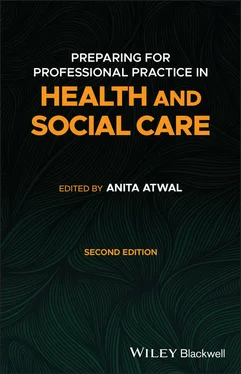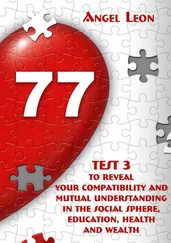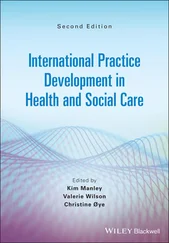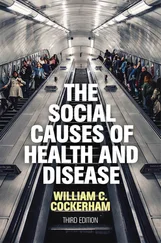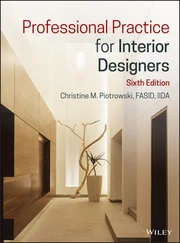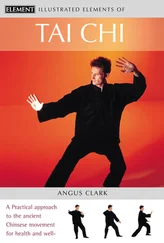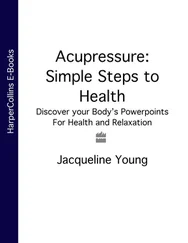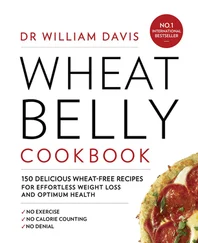Preparing for Professional Practice in Health and Social Care
Здесь есть возможность читать онлайн «Preparing for Professional Practice in Health and Social Care» — ознакомительный отрывок электронной книги совершенно бесплатно, а после прочтения отрывка купить полную версию. В некоторых случаях можно слушать аудио, скачать через торрент в формате fb2 и присутствует краткое содержание. Жанр: unrecognised, на английском языке. Описание произведения, (предисловие) а так же отзывы посетителей доступны на портале библиотеки ЛибКат.
- Название:Preparing for Professional Practice in Health and Social Care
- Автор:
- Жанр:
- Год:неизвестен
- ISBN:нет данных
- Рейтинг книги:3 / 5. Голосов: 1
-
Избранное:Добавить в избранное
- Отзывы:
-
Ваша оценка:
- 60
- 1
- 2
- 3
- 4
- 5
Preparing for Professional Practice in Health and Social Care: краткое содержание, описание и аннотация
Предлагаем к чтению аннотацию, описание, краткое содержание или предисловие (зависит от того, что написал сам автор книги «Preparing for Professional Practice in Health and Social Care»). Если вы не нашли необходимую информацию о книге — напишите в комментариях, мы постараемся отыскать её.
Preparing for Professional Practice in Health and Social Care
Preparing for Professional Practice in Health and Social Care
Preparing for Professional Practice in Health and Social Care — читать онлайн ознакомительный отрывок
Ниже представлен текст книги, разбитый по страницам. Система сохранения места последней прочитанной страницы, позволяет с удобством читать онлайн бесплатно книгу «Preparing for Professional Practice in Health and Social Care», без необходимости каждый раз заново искать на чём Вы остановились. Поставьте закладку, и сможете в любой момент перейти на страницу, на которой закончили чтение.
Интервал:
Закладка:
On the other hand, professional artistry are clinicians that are challenging knowledge and its currency. They are creative and are happy to embrace uncertainty. Theory emerges from practice. Post graduate study is one means to promote critical thinking (Thomson et al. 2014) .
If we understand that theory is not simply the precursor to knowledge and therefore practice but an important ingredient in how care is delivered, then we have to begin to engage with it as something that is alive and adaptable whilst we practice. Learning the skills of reflection and becoming a reflective practitioner are important steps to achieving this.
The ways that healthcare practitioners are expected to come to decisions about the care they deliver are often described as EBP or clinical reasoning. Do these two concepts offer any help when it comes to relating knowledge to practice?
Evidence-Based Practice
Acquiring knowledge and keeping it up to date requires an understanding about how practitioners gather and evaluate knowledge that apply to their area of practice. The most pervasive method of judging the relevance of information in today’s healthcare decision making is referred to as EBP (Sackett et al. 1996). This is commonly defined by linking the realms of best evidence, clinical expertise, and patient interest.
As an Allied Healthcare Professional it is essential that everything you do is based on best evidence. The aim of pre-registration graduate training is to start the process of developing evidence-based literate graduates. This is a process that will never end, since we are constantly looking to evidence what we do and to refine the skills we have been taught, and of course to build capacity within the professions to improve quality and effectiveness of practice. Simply using whatever research evidence you happen to obtain from reading the few journals that you subscribe to is not going to sufficiently meet your information needs or keep you updated (Hoffmann et al. 2013, p. 3).
So why is EBP so important? The easiest way to answer that question is to consider whether you would trust a doctor who prescribed you a drug without knowing whether it was effective or had gone through rigorous testing to ascertain its safety and reliability. For service users, they need to trust that our interventions will not cause harm and that we are using the best guidance and evidence. When the outcome of treatment is harmful in some way, the non-evidence-based approach strays into the realms of professional negligence if a treatment regimen was pursued contrary to the evidence. In a world where patients are better informed about standards of care, litigation in healthcare is becoming increasingly common. A second problem is bias. A non-evidence-based approach relies on the knowledge and experience of the individual, which is naturally subject to personal preference and prejudices, some of which will not be evidence-based.
EBP therefore has an issue with knowledge, how it is generated, and what type ‘counts’ (Rycroft-Malone et al. 2004). It discounts or significantly downgrades knowledge that is generated in ways other than those that adhere to a very positivist view of epistemology. In other words, knowledge that is demonstrated by testing established theory. Unfortunately, practice does not always fit into neat puzzle packages to which there are simple solutions. Knowledge that is propositional and derived solely from isolating causes and measuring their effect might not be sufficient to produce effective care. Professionals therefore have to have a way to judge and develop all types of knowledge used in care, to be effective. This gap in the process of decision-making requires an understanding of how knowledge is generated and how we are able to judge the relevance of information to a healthcare question. Reflection is key to interpreting the different types of knowledge applicable to each of the major domains of EBP. Change in one type of knowledge impacts the other.
It is essential that AHPs utilise critical appraisal skills to determine the quality of the research since often evidence is of a poor quality. The aim of a systematic review of the effectiveness of an intervention is to collate all the relevant trials on a given question. Systematic reviews represent the best evidence on the effects of interventions. Meta-analysis is the statistical technique for assembling the data from several studies in a review into a single numerical estimate. There is also a move to valuing systematic reviews of qualitative research as well as mixed-methods research.
Questions that need to be asked of evidence are:
Validity – can you trust it? Impact – are the results clinically important? Applicability – can you apply it to your service users?
Clinical Reasoning
Clinical reasoning shares many of the same ambitions as EBP. Higgs et al. (2004, p. 191) suggest it ‘ provides the means of examining the relevance of knowledge to specific practice situations ’. Traditionally it can be described as a process that combines a specific body of specialised knowledge with cognition, metacognition (thinking about thinking), and contextual considerations. There are a number of theories about how that cognition is defined using terms such as hypothetic deductive reasoning and pattern recognition. These are theories are about how clinical reasoning is determined not about what it actually is.
There is a similarity here with the basic definitions of EBP. Both health paradigms, that is clinical reasoning and EBP, look at the relevance of knowledge when applying it to the individual patient. Both have separate development traditions and literature but there is an overlap. EBP and clinical reasoning ask that knowledge is assessed so that as health practitioners it can be applied effectively. In order to assess propositional knowledge, we have to be able to use critical faculties to appraise it. Critical appraisal of propositional knowledge requires some understanding of research method, because this is how a great deal of health literature is generated. Beyond that, ensuring that the assumptions embedded in scholarship are made obvious is an important skill, and one that comes with practice and reflection.
To assess professional or craft knowledge, the heuristics (mental shortcuts) and biases to which all humans are vulnerable need to be uncovered to assess their appropriateness. This requires reflection on practice, more usefully employed using one of the many established models of reflection.
Personal knowledge occurs when other types of knowledge are employed and absorbed and experienced in practice (Fish and Coles 1998, p. 44). The healthcare worker views this acquired knowledge as his or her own. It is based in the values and ethics of the individual and is often difficult to articulate. When comparing this personal knowledge to an espoused knowledge of practice, using a reflexive debate, learning can take place.
These three types of knowledge are all distinct and require skill and thought in order to embed within practitioners or students. Reflection and reflexivity are important ways to not only understand and ‘own’ knowledge for practice but also to improve and, even more crucially identify, ineffective practice.
We have defined professionalism and discussed a wider definition of knowledge. Common methods of applying that knowledge into professional practice – EBP and clinical reasoning – have been discussed. It has been suggested that reflection and reflexivity are important methods to uncover the complex knowledge used in practice. The following section examines reflection and gives case studies to help the reader deepen their understanding.
Читать дальшеИнтервал:
Закладка:
Похожие книги на «Preparing for Professional Practice in Health and Social Care»
Представляем Вашему вниманию похожие книги на «Preparing for Professional Practice in Health and Social Care» списком для выбора. Мы отобрали схожую по названию и смыслу литературу в надежде предоставить читателям больше вариантов отыскать новые, интересные, ещё непрочитанные произведения.
Обсуждение, отзывы о книге «Preparing for Professional Practice in Health and Social Care» и просто собственные мнения читателей. Оставьте ваши комментарии, напишите, что Вы думаете о произведении, его смысле или главных героях. Укажите что конкретно понравилось, а что нет, и почему Вы так считаете.
